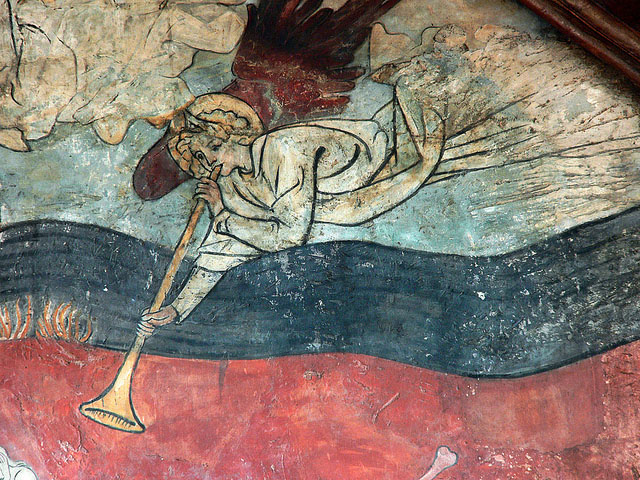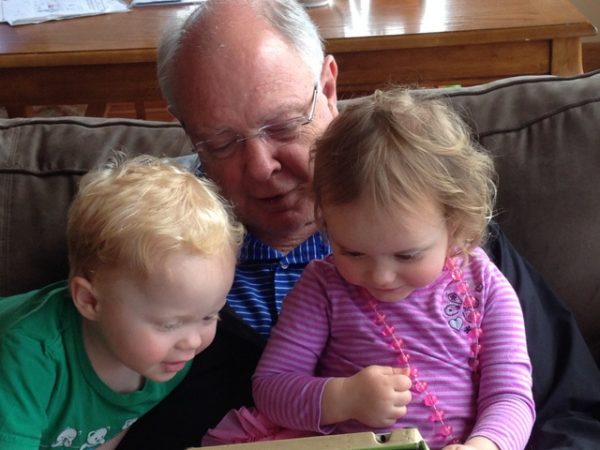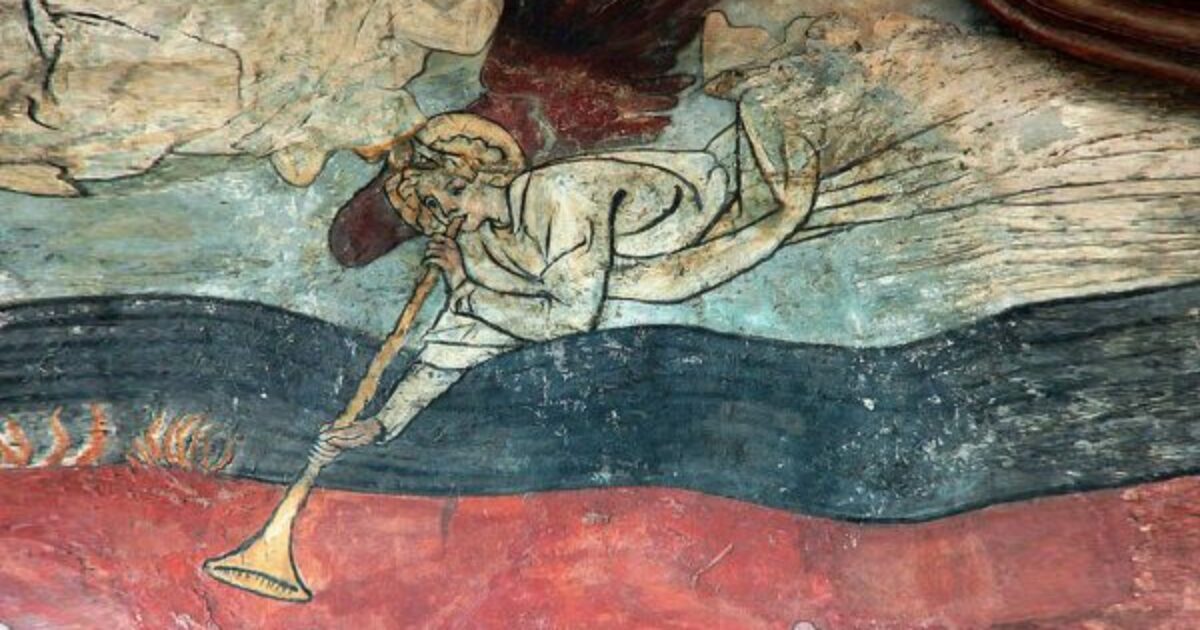Handel’s Messiah and Change
by Jack Hoehn | 20 December 2017 . | .
Christ and change as sung in Handel’s Messiah.
Christmas today is mostly tinsel. Little strips of silvered paper shredded thin, delicate glass globes, jingly bells, ribbons and bows, bright paper packages wrapped up in string, these are a few of your favorite things? Mine too.
But Saturday night as I sat in the sanctuary of the Walla Walla University SDA church and watched the Walla Walla Symphony Orchestra, with its New York Jewish conductor and the Meistersingers and four professional opera voices, paying a $20 charge to sit in the same pews I sat in for free a few hours earlier, I was strangely moved by the sermons sung to me in Handel’s Messiah.The voices were excellent, the Biblical libretto was again stirring. We stood to the Hebrew verse as the all-white choir and all-white orchestra, and not all-white audience agreed that the Jewish language excels all others in praise to Jahweh. Halle-lu-Jah of Hebrew, with a symphony orchestra, tympani, 100 professional voices and 2,000 audience voices says things you cannot say with guitars and bongo drums and any well-meaning praise team in English. Every year it brings us to our feet. And again, the closing choir’s Hebrew A-men also exceeds any English, German, French, Spanish, Chichewa or Cree term for “let-it-be-so.” We all use Hebrew after pleading with God. Hallelujah, Amen!
George Frideric Handel wrote his musical masterpiece in only three weeks. But in the beginning was the Word, and the word became music; for Charles Jennings selected the text from the Bible and English Prayer Book-Psalter that Handel then composed the music for.
Bigger than Christmas
Although mostly sung at Christmas, Handel’s Messiah has three parts, and only the first is about Christ’s birth. The second is mostly about his life and march to the cross. The third is about death’s becoming of little consequence due to the first two parts of the song. Surely my Redeemer liveth, by man came death, in Adam all die, in Christ I tell you a mystery, we shall not all sleep (in death), but be raised incorruptible, is more of a funeral sermon than a Christmas carol. But hallelujah, it all works just fine, to take us far beyond the manger and kind animals watching Mary’s parturition.
The Messiah babe quickly becomes the Shepherd, feeding his flock, gathering the lambs, gently leading their mothers. Then suddenly the chorus announces to us that the Shepherd himself has become the sacrificial Lamb. Sin despises him. Humans reject him. He is bearing grief and sorrow, wounded, chastised. The given Son, Emmanuel, the Wonderful Counselor, the Mighty God, the Everlasting Prince of Peace, is now reduced to a man of sorrows.
Anatomy of Redemption
The libretto from Isaiah 53 starts us into the anatomy of the Christmas child-prince, now the Lamb-man. He gives us his back, he gives us his cheeks, he turns his face towards the spitting. There are bruises, there are wounds, long stripes from leather lashes with lead tips. His beard is pulled out by its roots. The anatomy does not stop with the body, his soul is also damaged. “Heaviness,” we are told, breaks his heart. We are scorning with laughter; we shake our heads because we just don’t understand; we have no pity on the Lamb. There is no comfort as we purse our lips and spit.
“Behold, and see if there be any sorrow like unto His sorrow.”
Messiah gives us his divinity, then gives us his back and cheeks and facial hair, gives us his soul to despise into heart-breaking heaviness. He is in hell. Even when Jesus is rescued from hell, not permitted to rot, the nations and their rulers still furiously rage together. The kings of earth advise against the beautiful pierced feet.
No Escape
The verses from Job 19 then remind us that what happened to Job will likely happen to us. Our flesh will be destroyed by worms. Death sleep happens to almost all believers, 100% up till now. Death has come, thanks to Adam. And we all need to be changed. Can bad change to good? Can impure change to pure? Can white be changed to black? Can greed be changed to generosity? Can gay be changed to straight? Can dead be changed to alive?
Well, prophecy promises a great leveling. Every valley will be exalted, and every mountain be laid low. The crooked will become straight; the rough places will be smoother. Heaven knows we all need to be changed. We need to be brought up from our spiritual lows; we need to be brought down from our prideful highs. Crookedness and roughness need to be fixed. Dead people need to be alive people. Sick people need to be well people. And perhaps gay people need to become un-gay, or perhaps all people need to be unsexed. We don’t truly know, because eye has not seen, ear has not heard, nor has entered into the heart of man the things God has prepared for the life to come. But let’s agree at least that we all need to be changed from what we all are now, to what we shall be then.
Change, When?
 So, let’s change! Let’s be good, let’s be well, let’s be never dead, let’s be always humble, let’s be unstoppably cheerful, let’s be totally changed. But when? Perhaps at conversion? Perhaps at baptism? Perhaps as church members thoroughly chastised and disciplined by each other? Perhaps after 2 years, 5 years, 15 years, 40 years of walking with Christ in the good old SDA church? If we all go to church schools, academies, colleges, universities, seminars, summer camps, camp meetings, study our Sabbath School lessons every week, and stay awake through 52 sermons every year, are we now changed enough?
So, let’s change! Let’s be good, let’s be well, let’s be never dead, let’s be always humble, let’s be unstoppably cheerful, let’s be totally changed. But when? Perhaps at conversion? Perhaps at baptism? Perhaps as church members thoroughly chastised and disciplined by each other? Perhaps after 2 years, 5 years, 15 years, 40 years of walking with Christ in the good old SDA church? If we all go to church schools, academies, colleges, universities, seminars, summer camps, camp meetings, study our Sabbath School lessons every week, and stay awake through 52 sermons every year, are we now changed enough?
The Messiah ends with the manly baritone promising change, in a moment, at the blink of an eye. Is this a baptism change? Is this after 16 years of SDA education? Studying so many Sabbath School lessons that we see they are now (this quarter and last) simply recycling older lessons?
The baritone sings us 1 Corinthians 15, “we shall ALL be changed,” “we shall be…incorruptible,” “we shall be changed.” And then tells us when.
Total change, incorruptible change comes when you hear Gabriel play his trumpet. “We shall be changed in a moment, in the twinkling of an eye, at the last trumpet.”
“The trumpet shall sound…and we shall all be changed.”
Sub-total Change
Mark Clark is a Vancouver pastor who tells his conversion testimony in the December 2017 Christianity Today. He had plenty to change when he turned to Jesus at age 17. When he finally became brave enough to meet church members like you and me, he was 19. He was studying his Bible like mad, and would smoke half a pack of cigarettes while trying to memorize the Sermon on the Mount, or the first few chapters of Romans. He would walk up to total strangers as they partied and drank, and strike up conversations about faith and God, but his language had F-bombs every few minutes. He “sported baggy pants with a wallet chain.” If he walked into your church what would your deacons tell him? What would the church board advise if he asked to be baptized? When would his changing be good enough for us?
If this 19-year-old man walked into your church, he was obviously changed. He had given his life to Chris; he had been set free of all the shame, guilt, and powerlessness he had felt before Christ. He was sharing this freedom with others. But he was still smoking heavily, “swearing like Will Hunting,” and dressed as above. He was not churched. What would you do with Mark and all the changes left for him to do? Suggest a 5-day stop smoking plan, and then he can join? Work on his language control a bit longer? Dress like you do every Sabbath?
If a gay or lesbian person comes to Christ, and is set free from all the shame, guilt, and powerlessness she or he had felt before Christ, but was still married and faithful to another of the same sex who was not ready to let Christ take control, how much change will your church demand before you welcome them into your church? If a straight married woman wants to join, but her husband does not, do you demand she divorce her mate before you let her be baptized?
If we all agree we all need to be changed, and we know that total instant, incorruptible change only comes when Gabriel sounds his trumpet, why do we demand total changes of others, instead of working with others as we both change more and more into the likeness of Christ? Why must one kind of Adventism demand we at least act on the outside as if we were fully changed, when none of us yet really is?
Church Disciple-ing, not Punishment
Somehow, we have adopted an idea that we have to keep up “the standards of the church” by punishing or banning people who don’t meet our agreed minimum standards. A church that agrees we all must change, and has active programs to help train, influence, support changes, is a different church than one who instead of “disciple-ing” is punishing those who don’t meet our external standards. “If you don’t smoke, chew, get caught cheating on your income tax, and dress like we do, you are in. And if these externals don’t bother anyone else, then nothing more is expected of you, unless you embarrass us, then we have to punish you”–is not a healthy church.
A godly pastor once taught that the sweetest smell in the foyer of an Adventist church should be the smell of tobacco in the clothes of the people being welcomed there. Why shouldn’t the happiest Adventist churches be welcoming to gay and lesbian people who want to come to Christ and become part of his imperfect but changing family? Why do we demand complete changes of others before we associate with them, when we know that complete change, especially of inborn genetic problems, has to be accommodated not discriminated against until Gabriel blows that last trumpet?
If I am on a mechanical respirator due to my genetic neuromuscular weakness, do you demand that I get into the baptismal tank to become “baptized”? Or will you accept me on “profession of faith”? So. if I am born a gay/lesbian person, do you demand I pretend that I am straight, or divorce my same-sex partner before I can become baptized? Many gay people want to be changed, have tried to change, and can’t, at least until Gabriel blows the last trumpet. Why do we punish them instead of welcoming them into our ever-changing, ever-growing, but always imperfect, family? Why do we threaten pastors who might wish to encourage these people to join the church and begin to change as God leads them?
It is one thing to require church members to be monogamous, not promiscuous, not abusing or using others sexually, before, during, or after marriage. The same standards can apply to same-sex partners. But to discriminate against LGBTQ people and have different standards for them than for straight people does not seem like what Jesus would advise.
I know that in Leviticus the law commanded that males lying with males as men lie with women were to be treated with the death penalty. I also know that in Leviticus Sabbath-breaking, blasphemy, false prophecy, foreigners who got too close to the tabernacle, hitting a parent, cursing a parent, children who persisted in disobedience, and any girl found not to be a virgin on her marriage night were also to be put to death. Can we not understand that the Bible was written for times and conditions God has moved us far beyond now? Can’t we realize that the Bible reveals how low God was willing to come to get close to us humans, and that deep divine condescension must not be used to force us to also get back down into the mud of those primitive days and cruel attempts at becoming righteous? Didn’t Jesus teach us that Moses said one thing, but “I have a new higher, kinder, more loving, less violent way for you all now”?
Your Jesus taught, “Suffer the little imperfect ones and let them come to me” about the immature, imperfect, often very self-centered little children crowding about him. Because the important thing was coming to Jesus. Changes can take time, and often complete change will not come till the resurrection day. But to forbid children, or imperfect, immature adult people to be able to come to Jesus seems to be denying them the chance to make the changes we all need.
I am happy that obese people are permitted to attend and join my church. I am happy sick people are permitted to attend and join my church. I am happy we even let Republicans attend and join my church. (I was one myself once!) So why do we demand perhaps impossible changes before we admit gay members to our fellowship? Statements like this, I find on many shops and stores in my town. I would like a similar statement to be posted on the church I love:
If you want to know Jesus Christ and learn to be like him, all religions, all ethnicities, all countries of origin, all sexual orientations, all gender identities, all abilities, all disabilities, all languages, all ages, all sizes, and all human beings created in the image of God are welcome here as we fellow sinners seek to become more like Christ together.
Leaning In, Not Pushing Out
Mark Clark wrote about going to a church as the 19-year-old new convert described above, “I was both disinterested and even a little afraid. I thought it would be like all the movies I had seen: an old, boring building smelling like mothballs with an old man preaching up front from a big dusty Bible. But then a friend convinced me to go. I arrived, and it was exactly like that!”
But he stayed anyway! Why? “Sure, there were people who recoiled at my very unchurched ways…but others leaned into me: a youth pastor who gave me an early preaching opportunity, a college professor who encouraged me to give my first lecture, and a group of fellow new Christians who indulged my appetite for exploring big questions.”
Then he concludes, “There is risk and adventure in embracing Christianity.”
There is also risk and adventure in embracing new Christians, or potential Christians. But only by leaning into people, instead of pushing away people, will Seventh-day Adventists fulfill Christ’s vision for redeeming the world.
This is the kind of church I want to attend. This is the kind of Christian I want to become.
Hallelujah.
Amen.
 Jack Hoehn is a frequent contributor to both the print and on-line versions of Adventist Today. He has served on the Adventist Today Foundation board since 2012. He and his wife Deanne live in Walla Walla, Washington. He has a BA/Religion major from Pacific Union College, and an MD from Loma Linda University. He was a licensed minister of the SDA church for 13 years when serving as a missionary doctor in Africa. His patients know him as John B. Hoehn, M.D.
Jack Hoehn is a frequent contributor to both the print and on-line versions of Adventist Today. He has served on the Adventist Today Foundation board since 2012. He and his wife Deanne live in Walla Walla, Washington. He has a BA/Religion major from Pacific Union College, and an MD from Loma Linda University. He was a licensed minister of the SDA church for 13 years when serving as a missionary doctor in Africa. His patients know him as John B. Hoehn, M.D.




